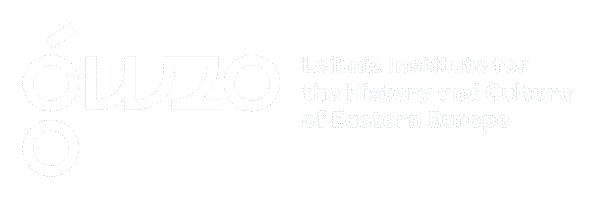
The presentation addresses a multidimensional analysis of post-war reconstruction of historical city centres in Poland, with particular focus on the spatially diverse models of rebuilding applied in both major urban centres and small towns. It offers a comparative assessment of reconstruction strategies, which frequently oscillated between neointegration (modernism), historicization, post-modernism (retroversion) and hybrid forms.
The analysis highlights spatial-functional problems of contemporary old towns, including the lack of a proper centre, fragmentation, and ongoing socio-economic marginalization, all influencing the urban form and functions of these areas.
This study is based on an original research model combining quantitative, qualitative, and social methods with GIS tools, grounded in the tradition of urban morphological approach in human geography. It makes a significant contribution towards bridging the research gap regarding the effects of post-war urban spatial transformations. Historical contextualization reveals not only the genesis and course of various recovery strategies but also the evolution of the perception of the heritage of rebuilt old town ensembles and their current conservation and functional challenges.
Reflection on the Polish experience of post-war reconstruction gains added relevance in the context of present challenges faced by, among others, Ukrainian cities, opening space for international knowledge exchange.
Research findings, encompassing experiences from both large urban centres and smaller localities, provide valuable insights for planners, conservators, and urban heritage scholars, shaping a modern approach to the reconstruction of historic urban areas, with attention to their functional-spatial and social dimensions.
When: Monday, October 27, 2025, 5:00–6:30 PM
Link: https://rwth.zoom-x.de/j/63818881847?pwd=s0uRbZ3QaDrbgvhEHrgaizRUef0Pbo.1
Meeting-ID: 638 1888 1847
Kenncode: 084850

Andrei Răzvan Voinea is general manager of the NGO Studio Zona (https://asz.ro/home/) since 2016. The organization develops projects that bring together academic research with local communities to create a complementary narrative about the relevance of history in shaping identity and informing public policy. To achieve this, Studio Zona has organized exhibitions, written film scripts, produced documentary films, published books and informational flyers, and distributed them to residents of historic social housing districts.
In 2022, Studio Zona led a complex research project focuing on the housing developments constructed during the early years of the communist regime - CVARTAL. After conducting dozens of interviews with current residents and extensive archival research, the project culminated in open-air documentary screenings held in the courtyards of the apartment buildings, with the participation of the tenants themselves.
When: Monday, June 16, 2025, 5:00–6:30 PM
Link: https://rwth.zoom-x.de/j/68406450492?pwd=7CvsjJIUb9OM3r90bKJ2ZdQb9WaJmo.1
Meeting-ID: 684 0645 0492
Kenncode: 936550

The research explores the post-war development of large-scale housing estates (LHE) in Ukraine, focusing on their transformation and resilience. It analyzes spatial regeneration strategies in Ukraine and East Germany from the 1990s to 2010s, evaluates their capacity to adapt to current global challenges, and proposes visions for redefining 1980s neighborhoods in post-war Ukraine as resilient and sustainable urban areas. Case studies were conducted in selected neighborhoods of Kyiv, Kharkiv, Odesa, Kherson, Berlin, Leipzig, Dresden, and Halle.
The study compares the development conditions of 1980s housing estates in Ukraine and East Germany, revealing both differences and common features. It also investigates the impact of national and municipal housing policies on regeneration approaches and the role of local identity in these processes. Key spatial characteristics relevant to urban resilience—such as size, location, morphology, mobility, functional diversity, greenery, climate adaptation, and infrastructure—were identified. Based on this analysis, the research proposes development scenarios to guide post-war urban regeneration with active involvement of municipalities and local communities.
When: Monday, May 26, 2025, 5:00–6:30 PM
Link: https://rwth.zoom-x.de/j/68406450492?pwd=7CvsjJIUb9OM3r90bKJ2ZdQb9WaJmo.1
Meeting-ID: 684 0645 0492
Kenncode: 936550
Since the 1990s, Italy has developed a tradition of urban regeneration programmes, some of which focused specifically on public housing. However, public housing estates still tend to be among the most disadvantaged spaces in Italian cities, displaying multidimensional (social, spatial, economic, structural) criticalities.
Regeneration is urgently needed, particularly in light of long waiting lists, widespread vacancy, and the near-total halt in new construction, against the backdrop of reduced investment and the abolition of structural funds for the sector. The presentation explores how public housing regeneration—understood in a broad sense, from top-down policies to bottom-up initiatives—can contribute to the regeneration of Italian cities more widely.
Drawing on examples from five medium-sized cities—Trieste, Bologna, Firenze, Bari, and Catania—it highlights how public housing challenges are addressed by key actors in different local contexts. These cases demonstrate that even in contexts characterized by inertia and structural constraints, there are still margins for manoeuvre and potential for innovation.
When: Monday, April 28, 2025, 5:00–6:30 PM
Link: https://rwth.zoom-x.de/j/68406450492?pwd=7CvsjJIUb9OM3r90bKJ2ZdQb9WaJmo.1
Meeting-ID: 684 0645 0492
Kenncode: 936550










